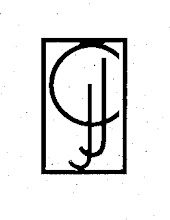“While they were preparing the hemlock, Socrates was learning a tune on the flute. ‘What good will it do you,’ they asked, ‘to know this tune before you die?’”
—Emil Cioran, quoted by Italo Calvino in “Why Read the Classics?”
—Emil Cioran, quoted by Italo Calvino in “Why Read the Classics?”
Yesterday was another milestone for my father. In August, his doctor told him he might not make it into September; in October, the doctor and his staff said their farewells to him. As November gained ground, the hospice staff intimated that my father might not live to see Thanksgiving.
But here we are, the day
 after, and my father hangs on—to his humor, his will, his memories—even as his physical health rapidly declines. He’s an unusual cancer patient in that he suffers little pain. Yet he suffers all the same.
after, and my father hangs on—to his humor, his will, his memories—even as his physical health rapidly declines. He’s an unusual cancer patient in that he suffers little pain. Yet he suffers all the same.In the last week or so, I’ve watched him grow thinner and less muscular. What little blood he has remaining won’t circulate at the velocity necessary to reach above his heart, so even sitting up has become a challenge. He is bedridden. And his hours of sleep now surpass his hours awake.
As caregiver and daughter, I am not an objective observer. Every change and every step toward Death affects me. But none has affected me more than my father’s wish to remain computer-free, book-free, magazine-free, and television-free. The one thing I always admired about him was his thirst for knowledge and interest in learning. Today, as dying has robbed him of his mobility and independence, he himself prohibits his mind from exploration and expansion.
The hospice folks asked him if it was too taxing to engage with these media, and he said Yes. But I’m not convinced.
I think his engagement stems from his perspective. My father has always been goal-oriented. He’s a compulsive list-maker whose to-do list has at last dwindled to one task: dying. He’s focusing all his efforts on that and, unlike Socrates, learning something new would distract him from the goal.
This mindset has been the most difficult change to observe and accept. It is a far greater loss than the physical losses of blood, weight, muscle, appetite, mobility, and digestive functions. It reveals a surrendering cloaked as a goal and distinctly separates the man he was from the man he’s becoming.
On the other hand, maybe it’s the ultimate freedom. Maybe learning and thinking are merely baggage when you’re traveling with Death. Maybe everything is as it should be.
[Woodblock by Gustave Baumann.]



No comments:
Post a Comment